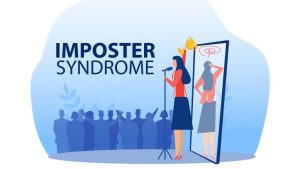Diversity in Business: Understanding and Acting Better
 Publié le 10 June 2020
Publié le 10 June 2020
Diversity is always an asset, including in the workplace. When we talk about diversity in business and the workplace, it means diversity of ethnicity, religious beliefs, gender identity, sexual orientation, origin, age and more. Doing everything we can to ensure that each person has the same chance to be employed in a supportive work environment where they can grow, enrich themselves and do good work will mean a happier and better workplace for all.
Diversity Improves Performance
An example: imagine a company made up of heterosexual 28-year old men, all with the same nationality, skin colour, physical ability and educational background. Would a company with nearly identical employees that look, talk and think almost exactly the same communicate well, be productive and succeed? Absolutely not!
Studies have shown that the more diverse the workplace, the more innovative and efficient the company. The unique backgrounds, experiences and differences that make up our personalities and perspectives allow each of us to bring creativity and excellence to our work. These differences will make for a stronger work team, helping us to reach our goals and follow our ideals.
If you are a recruiter aiming to improve your recruitment process or wish to think more about these important matters, here are some tips to better understand and better act on diversity issues in business:
- Unconscious bias and recruitment
- The Halo Effect
- Similarity Bias – a danger for diversity
- Be mindful when writing job offers
- Discuss the applications received
- The “Perfect Fit” isn’t always what you need
- Always consider international experience
- Offer your trust
- Be open
- Forge links
Unconscious Bias and Recruitment
Our brains automatically use mental shortcuts to think more quickly, but this leads to unconscious bias. In other words, it may lead to a subconscious prejudice either in favour or against a person or a group.
“These biases can be held by an individual, a group or an institution and have a positive or negative impact.”
-Dimitri Girier, Senior EDI Advisor at the University of Montreal
These biases are not limited to ethnicity, gender identity and sexual orientation, and can be linked to physical ability, background, educational achievements or any other marker of diversity.
These prejudices can result in recruiters missing out on serious candidates who would be qualified for any number of positions.
Doing the work to get rid of our biases will help to build a workplace in which each and every employee feels that they belong as part of the team, are happy about their work and collaborate to achieve common goals.
The Halo Effect
This is a bias that can occur when evaluating an application, according to Jihane Lamouri, EDI advisor with IVADO: “It consists of drawing a general judgment from a person based on only one of their characteristics.” If a candidate creates a very good impression at the start of an interview — wearing tailored “professional” clothes or mentioning having attended a prestigious school, for instance — the recruiter may let this impression influence their review of other qualifications. This “Halo Effect” may lead them to be more lenient with other job requirements and to overestimate the abilities of the candidate.
The “Halo Effect” basically puts a pair of blinders over a recruiter’s judgment, making it more difficult to make an accurate review of each candidate. As a result, a recruiter could lose their objectivity when they really cannot afford to do so.
Similarity Bias – A Danger for Diversity
We are naturally drawn to people who are similar to us, whether it be their age, gender, social background, background or area of expertise. It leads to people appearing more credible to us.”
-Jihane Lamouri, EDI advisor with IVADO
It is possible to fall into the “Similarity Bias” trap during recruitment simply because a candidate reminds a recruiter of themselves, leading them to overlook something important in the recruitment process. This could be a lack of qualifications or practical experience, which could impact potential performance and affect the workplace.
There are multiple steps that recruiters can take in order to avoid falling into the trap of unconscious bias during the recruitment process.
Be Mindful When Writing Job postings
Always be mindful when writing job offers. The text of each job offer should highlight the qualifications you are seeking and not a specific type of person. The text of your job offer should highlight the career profile you are looking for and not the person you want. Just because a person has held a similar role in the past does not mean they automatically have these qualifications or fit the needs of the role going forward.
“Different combinations of degrees, practical experiences and other backgrounds can be a strong asset when hiring”, said Bibiana Pulido, researcher at the BMO Diversity and Governance Chair.
Discuss the Applications Received
It is always important to have an open and honest discussion with colleagues about each and every applicant. Consulting with colleagues and being completely open to their perspectives can prevent unconscious bias from impacting a hiring decision. Seek out different opinions, as this will help when making a final decision.
The “Perfect Fit” isn’t Always What You Need
The good impression left by a candidate during the job interview or another part of the recruitment process can be misleading. Even if they seem like the “perfect fit”, this may not be the case. Always take the time to step back and fully consider if hiring this candidate would be the best choice.
It is entirely possible that a candidate who seems perfect on paper may lack some of the qualities that will help them function well in a team. Similarly, a candidate who does not have the exact requirements spelled out in the job posting could have the right attitude and drive to push the team to the next level.
It’s important to remember never to ask questions related to age, background, ethnicity or familial status during a job interview. These questions are irrelevant to a candidate’s qualifications and experiences, and are actually illegal in many jurisdictions.
Once a candidate has been hired, recruiters can work to help the new employee become part of the team, promoting a diverse and inclusive work environment for everyone.
Always Consider International Experience
If your company is aiming to reach a global audience, consider hiring a workforce with international experience. Professionals retain all their knowledge, skills and experiences when they move to Canada, and it would be a mistake to consider this any less relevant. International work experiences can be a great assist, enriching your business and leading to new opportunities.
Offer Your Trust
Always be willing to offer your trust. If you’re hiring a candidate with international experience, for instance, many will be overqualified for the role but just need the opportunity. Show that you trust their experiences, skills and qualifications, and you won’t be disappointed.
Be Open
It is always important to be open and personable with colleagues. Getting to know each other on a personal level will help to build a stronger team of people who truly care about one another. Learning by sharing our different experiences will help us to break down any misconceptions and bond together as people.
Forge Links
Take the opportunity to get to know each other as more than our job roles. This can mean organizing happy hours at local bars, outings to local events and other fun activities. The more we get to know each other by sharing our unique experiences and points of view, the stronger our work team will be. And when it’s done over a plate of good food with a cold drink in hand, all the better!
If a number of employees have similar interests — sports, video games, board games, reality TV, anything — it can lead to more team building and the formation of real friendships. When work teams can get together and have fun outside of the office, everyone benefits.
A Diverse Workplace is a Strong Workplace
Society is already diverse, and working to make your company representative of all the sections of society will only help it succeed. People with unique experiences and different perspectives are vital to building a strong workplace that is ready to collaborate and grow. A diverse and inclusive company is more open, more transparent, more human and above all more beautiful.







